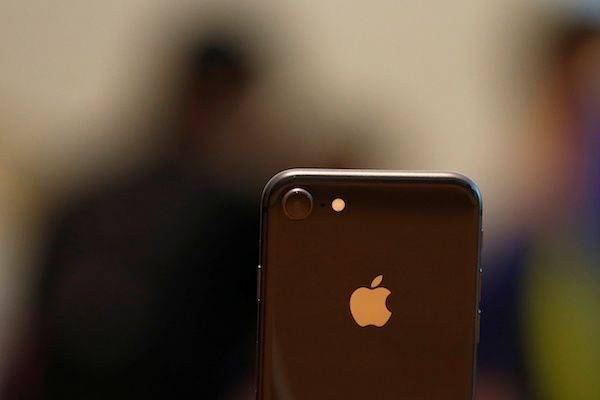Apple iPhone 8 Suffers Sluggish Sales In Samsung’s Home Country, South Korea

While U.S. consumers are finally getting their hands on Apple’s iPhone X starting this Friday, other parts of the world are just receiving their supply of iPhone 8 and iPhone 8 Plus handsets. Interestingly, the iPhone 8 is said to be not doing well in South Korea, especially when its sales are compared to last year’s iPhone 7.
Korea Herald recently learned from industry watchers that the response to the iPhone 8’s launch in South Korea this Friday is far from impressive. In fact, the iOS 11-running smartphone is getting a relatively tepid response from local consumers, with preorders only tantamount to 60-70 percent of iPhone 7’s total preorders last year.
One main reason cited as to why Korean consumers are reluctant to buy the iPhone 8 is the upcoming release of Apple’s first OLED handset. As per industry watchers, Apple fans in the country are waiting for the iPhone X, causing the iPhone 8 to suffer sluggish sales.
Apple has yet to announce the iPhone X’s release date in South Korea. However, it’s possible for the 10th anniversary iPhone to arrive in South Korea this December. This is if Apple intends to keep its usual iPhone release pattern in the country. In the past, the Cupertino giant released its new iterations in South Korea a month after their U.S. launch. For instance, the iPhone 7 was released in Korea on Oct. 21 after its Sept. 16 launch in the U.S.
The idea that consumers are waiting for the iPhone X instead of buying the iPhone 8 isn’t really surprising. For one thing, the latter is just a minor update of its predecessor unlike the redesigned OLED model. Moreover, the iPhone 8 is not really that affordable. Its 64 GB model is selling for 946,000 won or US$851, while the 64 GB iPhone 8 Plus comes with a 1.07 million won or US$959 price tag.
Apple’s iPhone X is also expected to be quite expensive when it officially hits the South Korean market. Business Korea reported on Tuesday that the highly anticipated handset will be arriving with 1.42 million won or US$1,274 price tag for the standard 64 GB model. On the other hand, the price of the 256 GB version of the 5.8-inch iPhone is set at 1.63 million won or US$1,462. It remains to be seen if the expensive price tags of the iPhone X would also affect its sales in Samsung’s home country.
It’s also worth mentioning that the sales of the iPhone 8 could have also been affected by the release of Samsung’s Galaxy Note 8 flagship phablet in September. The latter is known to be a solid device with top specs and more advanced features than the iPhone 8. And though it is not necessarily that affordable, it is cheaper than Apple’s 10th anniversary smartphone. The Note 8 is selling for 1.09 million won or US$982 for the 64 GB model, while the 256 GB version costs 1.25 million won or US$1,121.
The news that Apple’s iPhone 8 is met with tepid response in South Korea comes the same day as the announcement that Samsung has topped the global smartphone market in the third quarter. Industry tracker Strategy Analytics reports the South Korean giant has sold 83.4 million smartphones in the July-September period, with its share standing at 21.1 percent. In comparison, Apple’s share only accounted for 11.9 percent of the market.
© Copyright IBTimes 2025. All rights reserved.




















